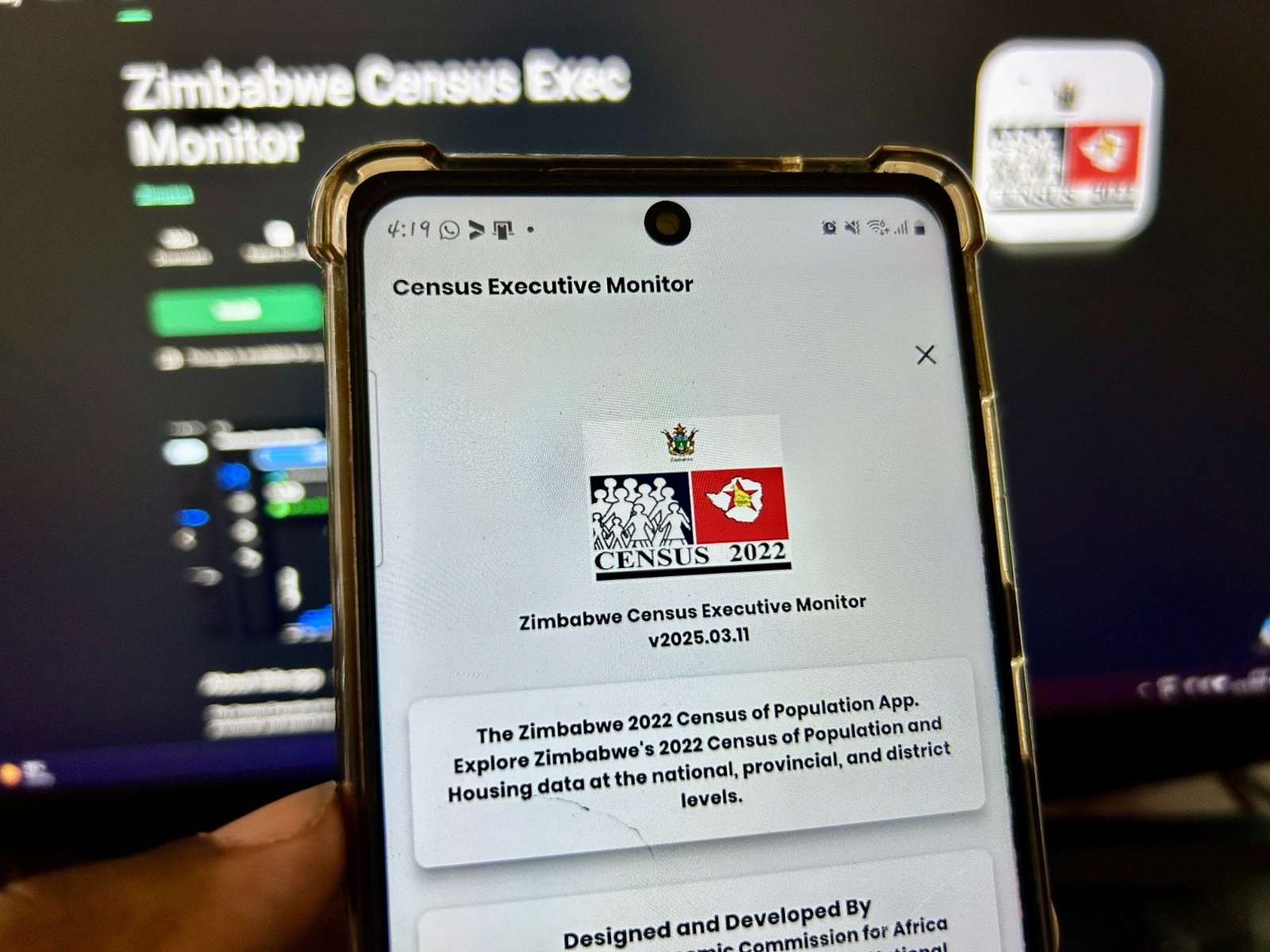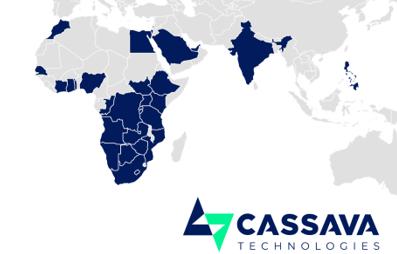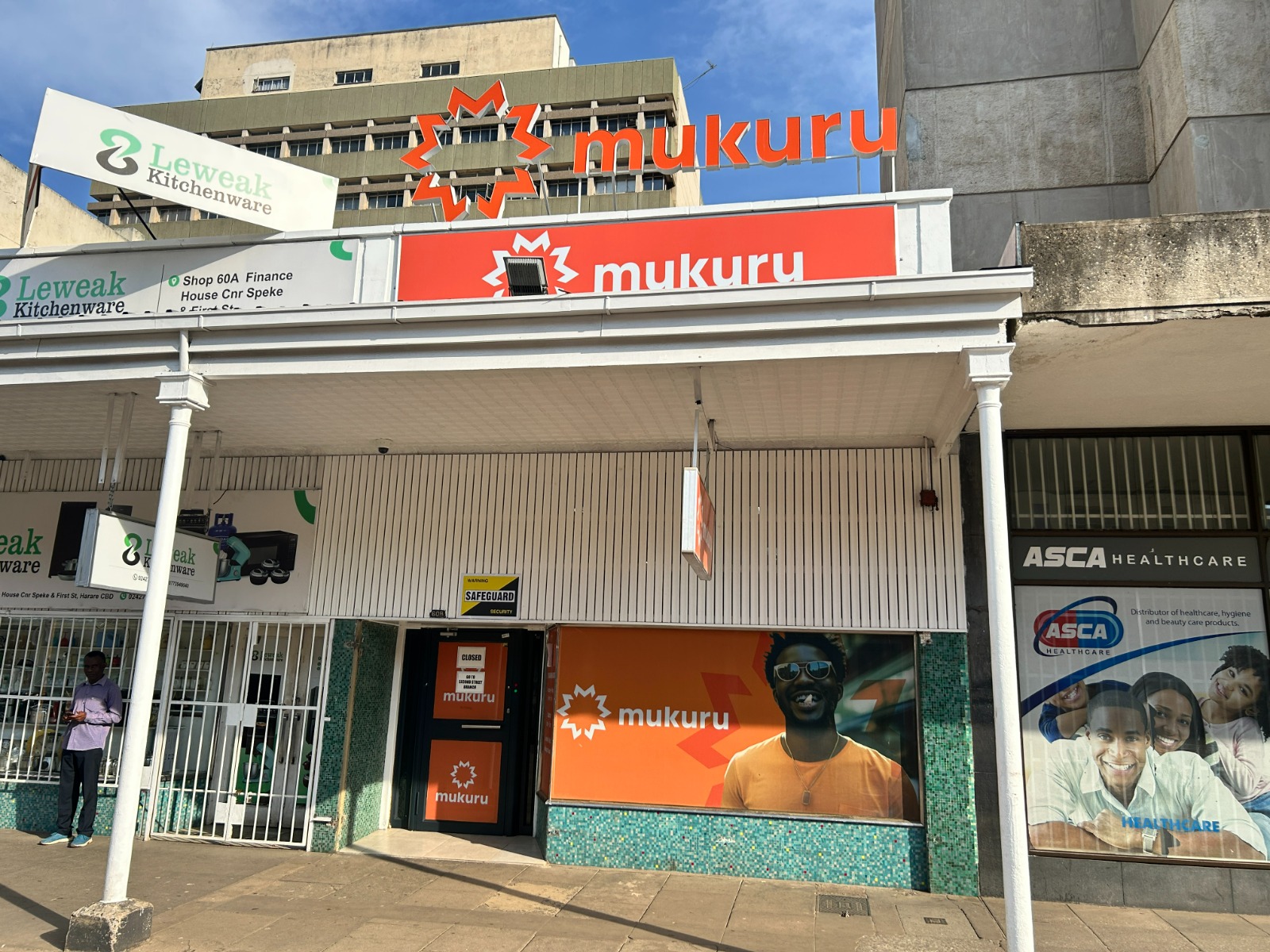 Some weeks ago Nigel Mugamu, a fellow blogger living in the US, sent us a blog post suggestion in the form of a list of questions about Zimbabwe’s mobile and internet connectivity. His email started with, “There is a large Diasporan population out there who simply lack information about simple things and end up speculating. I guess people simply want to know simple things like if I move home today, will I be able to get online on my phone, how internet connectivity is in general and how much it will cost in a nut shell.”
Some weeks ago Nigel Mugamu, a fellow blogger living in the US, sent us a blog post suggestion in the form of a list of questions about Zimbabwe’s mobile and internet connectivity. His email started with, “There is a large Diasporan population out there who simply lack information about simple things and end up speculating. I guess people simply want to know simple things like if I move home today, will I be able to get online on my phone, how internet connectivity is in general and how much it will cost in a nut shell.”
So, here is the list of questions and answers. Your Zim connectivity FAQ. We added a few of our own. While this is targeted at Zimbabweans in the Diaspora, it includes some info that local Zimbabweans might find useful. If you have questions that we don’t answer here, just add a comment to the article and we’ll see if we can get that information for you.
What kind of cell phone should one be considering or indeed buying when returning home given the services provided by the companies
The mobile operators in Zimbabwe use GSM, so any GSM tri-band or quad-band phone should work fine. If possible have the phone unlocked by your mobile operator before you come to Zimbabwe. With mobile data services now launched (By Econet and in 2011 by Telecel) Smartphones are now a meaningful buy for Zim mobile networks.
Apart from Econet, which other cell phone companies are there?
Zimbabwe has 3; Econet, Telecel and NetOne. Econet’s currently the biggest mobile operator with more than 5 million subscribers. Telecel was just over a million the last time it announced. State owned NetOne is the smallest of the 3 with less than a million subscribers.
Pros & Cons
- Econet, the good:
- With subscribers almost half the population of the country, Econet can offer the best in-network call deals.
- Econet also has 3G in all major cities so if you have a smartphone you get that as well.
- The mobile broadband is fast!
- Econet, the bad:
- By its own admission a number of times now, Econet has been having voice & SMS availability problems. Econet says it is network upgrade work going on and service should improve once the work is completed. No indication of when this’ll be.
- Support Call center is mostly unavailable. Don’t bet on getting through if you have an issue.
- The mobile broadband will cost you an arm and leg. 1GB of data goes for US $98.
- Telecel, the good:
- Being a smaller network, network availability & call center issues are not as bad as Econet’s.
- The best within network call rate deals like mega juice.
- Great international call deals
- Telecel, the bad
- Being a smaller network Telecel’s not watched as much as Econet is & may have same issues in similar proportions but fewer subscribers complaining. In competition with Econet, Telecel’s generally viewed as the underdog and gets to get away with stuff that’d typically make Econet subscribers scream “Daylight robber!” at Econet.
- All cities and highways covered but Telecel’s got the smallest coverage of the 3 mobile operators.
- The smaller number of subscribers mean in-network calls deals don’t mean much if most of your family, friends and associates are on Econet.
- Has been promising to launch data services for a while now and keeps postponing. Again, Econet would not get away with such broken promises. We hear though Telecel’s mobile broadband trial has been extended to more subscribers as it readies launch in early 2011.
- NetOne, the good
- Very large coverage. Rivals Econet’s in size but there are no public figures (number of base stations or switching centers) to base comparison on.
- With a much smaller number of subscribers, network availability & call center issues are not as bad as Econet’s.
- NetOne, the bad
- Smallest number of subscribers means you’ll mostly make cross network calls.
- Hasn’t announced any plans to offer mobile broadband in the near future.
- Like Telecel, better network availability and call center responsiveness (as compared to Econet’s) might just be a perception as subscribers tend to watch Econet more and expect them not to make any mistake.
What are your recommendations based on factors like price, service, etc?
I use Econet. I get very mad with them when my SMSes won’t deliver, my calls drop and when I just can’t get through but for me, most of my contacts are on Econet so I get better deals making calls from my Econet line. And even if I switched to Telecel (which is the next best option for me) Econet availability issues would still affect me coz most of my contacts are on Econet.
I also use the Econet data services as backup when my primary data provider (Africom) is unavailable for one reason or another. This week, Telecel extended its broadband trial to more subscribers and looks set to launch early 2011.
A comparison of tariffs for prepaid packages ($US per second)
| Econet | Telecel | NetOne | |
| in-network | 0.0038 | 0.0038 | 0.0038 |
| cross-network | 0.0042 | 0.0042 | 0.0042 |
| to landline (TelOne) | 0.0035 | 0.0035 | 0.0035 |
In other words, there’s none cheaper (or more expensive) than the other.
NetOne and Telecel offer slightly cheaper rates on postpaid (contract) packages. For example, a Telecel package called Televantage offers in-network calls at US$ 0.0037 per second and cross network calls at US$ 0.0040. A NetOne postpaid package called One Select offers in-network calls at US$ 0.0033.
Are lines available? Can you just walk into an operator’s shop and buy one?
Mostly yes, you walk in and just buy. Cost is $1 on all networks, and you get that dollar back in airtime on prepaid packages.
Just to make sure I wasn’t misleading any reader here, I walked into a Telecel shop in Harare this morning (Samora & Sam Nujoma), and I walked out seconds later with my prepaid line. Walked into an Econet shop later (Chitepo & Mazoe) and they said they didn’t have any lines, didn’t know when they’d get them and didn’t know if other Econet shops had any. Didn’t get a chance to visit NetOne.
 What is the status with 3G?
What is the status with 3G?
3G services are offered by 4 providers.
- Econet, the largest coverage but most expensive (US $98 for 1 Gigabyte). Great browsing speed and very much stable and available when you need it. Works well with any GSM smartphone. Can also work with a 3G USB dongle which Econet sells at US $50.
- Africom, second largest, but way more affordable. Way more in the US$ 18 for 1 Gigabyte sense. Services only available in Harare, Bulawayo and we hear Mutare as well now. Great browsing speed and available most of the time. A responsive support call center. Based on CDMA technology. Africom sells USB dongle for US $70 and you have to buy through them. You can’t bring your own.
- PowerTel, third largest. Services mostly available in Harare only even though there have been reports of expansion to all cities in recent months.
- TelOne offers CDMA data services but has been mostly silent in recent months. Coverage is the greater Harare.
I know Econet recently introduced broadband throughout Zim. Who else is offering this service?
See above.
Who is Africom?
Africom is one of Zimbabwe’s largest IAPs and mobile broadband service providers in Zimbabwe. The company was founded in 1995 by its current CEO Kwanayi Kashangura.
With a history of enterprise connectivity solutions, Africom has made entry into the consumer broadband market specifically mobile internet and possibly public telephony in the coming months.
The company has a metro fibre network in Harare and Bulawayo. It has also connected to the SEACOM fibre cable coming through Mozambique’s TDM. Africom is however still to complete the fibre leg between Harare and Mutare.
Other licensed IAPs include Ecoweb (Econet Subsidiary), PowerTel, Telecontract, Aquiva, Broadlands, TelOne, Aptics Trading, Valley Technologies, Dandemutande, Taurai Zimbabwe and CommIT. While most are not actively providing services to customers, there have been reports they are working on broadband offerings.
Who is ZOL?
ZOL is one of the largest Internet Service Providers (ISP). The difference between an ISP and an IAP is that IAPs are licensed by POTRAZ and are authorised to install telecommunications infrastructure in Zimbabwe. ISPs are recognized but do not get licensed by POTRAZ.
To come back to ZOL, it provides internet services to Zim business and consumers through infrastructure installed by the partner IAPs. ZOL also has the largest network of Wi-Fi hotspots in Zimbabwe. Other big ISPs include YoAfrica, Mweb (now IWayAfrica), Utande and ZARNet. There are a dozen other smaller ones.
What are your recommendations for broadband based on factors like price, service, etc?
If you are in Harare a looking for a mobile broadband connection, there’s no reason not to choose Africom. Well, except if you’re an Econet or Telecel employee.
To put this into perspective, consider that Econet sells a 1 gigabyte bundle for US$ 98, and the out of bundle price is US$ 0.50 per megabyte. Compare that to Africom’s 1 gigabyte which costs US$ 18 and an out of bundle price of US$ 0.11 per megabyte.
Econet is reportedly working on a revised tariff schedule so this could change shortly. Still, I don’t expect them to slash that 98 down to 18.
Which network offers Blackberry services?
None at the moment. We are told Telecel is working on something in that direction and might have it ready for launch when data services are launched next year.
Do you have contact details of the suppliers?
All readily available on the company websites: www.afri-com.com, www.telone.co.zw, www.zol.co.zw, www.yoafrica.com, www.netone.co.zw www.powertel.co.zw, www.iwayafrica.co.zw, www.telco.co.zw. The Econet website www.econet.co.zw, was taken offline by Econet after a hacking incident last week.
 How is the fibre optic link coming along? Do you have an estimated time of completion for this project?
How is the fibre optic link coming along? Do you have an estimated time of completion for this project?
State owned access provider, PowerTel, connected to an international fibre link back in May this year. Zimbabwe has been mostly relying on this fibre link for international internet traffic. In fact Zimbabwe relies so much on this link, when it breaks, Internet in the whole country slows down.
On the positive side of things, Econet’s fibre optic link has just been completed and this should result in more speed and some redundancy. TelOne has connected too. The impact of these connections to Zimbabwe’s economy should start being felt in 2011.
What are your thoughts on Zim competing with the likes of Kenya or SA as an IT hub? Is this something you think can and will happen at some stage soon?
Our shaky politics permitting, yes.
There’s nothing stopping Zimbabweans from using the current infrastructure to further the development of the ICT sector. With multiple connections to high speed international fibre cables coming into the country, this should allow entrepreneurs to shift from the printer cartridge IT businesses to more innovative information oriented business solutions. Zimbabwe has the human capacity to export business and consumer technology solutions to the region and beyond. The missing link was high speed connectivity so this is a world of opportunities opening up.
Accessible broadband is uniquely special in that it connects you with other solution developers globally. Freely available open source tools (computer program compilers, operating systems, and other tools) for building ICT solutions avail endless possibilities for Zimbabwean solution developers. The young Zimbabwean developer can easily be at par with a developer in Canada because we have the same tools they have. We just need to use our brains and be innovative in solving our local (and indeed global) problems.
If you know more on any of questions above, please share, everybody will benefit from your knowledge.. If it’s to correct us, please do so as well. We love feedback like that. And lastly, like we said at the start of the article, if you there’s something you’d like to know that is not covered here, just ask in the comments below, and we’ll try to get the info. If we do, we’ll add it as updates to this article.













Comments
29 responses
Great round up! THANKS a lot. Its very difficult to get this info even from the service providers websites, you have done a great job consolidating all this – esp from a 3rd party point.
I just want to say that Powertel is the cheapest for internet at the moment for heavy users. You Pay $50 for the whole month for unlimited downloads, and i think its just as fast as any other.I download a minimum of 500mb everyday something which would be prohibitively expensive on any other network.
The $0.50 out of bundle Econet charges confuses me since you can buy the $1, $10, $20, and $40 bundles and get 5MB per $1, ie $0.20 per MB. Is it not that if you use up the bundle then you just top up?
Point of correction to the author http://www.econetbroadband.co.zw got hacked, not http://www.econet.co.zw , I think….
Correct. It’s http://www.econetbroadband.co.zw that got hacked and not the Econet primary site. This resulted in Econet taking down the primary site as well.
Thanks for the correction. Updated.
“this should allow entrepreneurs to shift from the printer cartridge IT businesses to more innovative information oriented business solution”
Excellent! You could not have said it any better. Really what’s the point of broadband, ICT, etc if it can’t provide a solid springboard from which those with innovative ideas can unleash them, and conceive businesses that bring about employment and lift our masses from poverty? Politics is the one thing that’s dampening those with creative ideas to take risks and give birth to businesses. Some of our best minds crossed the border into neighbouring countries long ago and now creating employment in those countries when they should be doing it here! SAD! The arrival of widespread internet connectivity is now here and should get better going forward. But then again we are likely to have elections in 2011! Oh Boy!
A cellphone was used to hack into the econet broadband site and it was on econet bandwidth , Nokia E65.
The Africom dongle is actually US$97.00 (After 15% VAT)…
Thanks for the VAT clarification Magnito. 15% VAT will makes US$80.5
There are some some additional issues.
What speeds are being offered by the different ISPs? To describe browsing as fast is meaningless. For example when I worked for Verizon fios. We offered FTTP (fibre to the premises)for the speed of 15 mbps (down) 5mbps(up), unlimited bandwidth. That is the slowest speed for $50 a month.
http://www22.verizon.com/residential/fiosinternet/plans/plans.htm
Great job, thanks.
I hope the telecommunications companies in Zimbabwe understand the following relationships and trends:
Increase in Data Traffic Vs Decrease in Voice Traffic
Increase in Data Traffic Vs Decrease in Data Pricing
Decrease in Data Pricing Vs Increase in Capex + Opex
Capex +Opex Increase Vs ROI
These are very interesting trends and they already haunting a number of international telecommunications companies.
“Fast” in Zimbabwe when referring to broadband means being able to at least access and hopefully send a few emails and if you are lucky barely check your Facebook activity and – with a few chantings to the mediums – browse soccernet.com. Therefore when you get a dongle that can do all this and at amazingly faster speeds (Zim. fast) and also stream You Tube videos or watch BBC News (albeit having to pause video for a little while for buffering) – It’s Broadband Heaven-on-Earth!
That is what we basically mean when we say e.g. Africom Internet is really fast!
I went to PowerTel yesterday & was advised that they are not takin further subscription “until further notice”.
Last i heard was that Africom was the same.
No mention is made of this for readers intending to come to Zimbabwe this festive reason (Dec 2010).
To be honest the Big Three Voice operators (Econet, Telecel and NetOne) in Zimbabwe have become strange bedfellows in their sinister campaign to stifle the liberalization of the country’s Telecoms sector.
This unholy alliance is one of pure necessity and expediency spurred by vague protectionist-like statements from our trail-and-error (kiya-kiya) ICT Minister Chamisa. Its by-products being our usual line of suspects: greed, corruption and degradation of service levels.
It has to stop..
Fast above means effective download throughput of say 120kB/s
Why bemoan elections?. They will come and go , lets be positive guys this is our country. I would rather have the elections and see whats beyond them. I love my country. All the same your website is great. God bless.
Quite a good job you have done to bring a site that is useful to the ordinary person . May the good Lord of Heaven Bless you.
That’s a very true correlation. However, note that:
Poor and uncreative service = Poor Retention/enhancement of base of Revenue Earning Customers = No increase in Data Traffic
Emphasizing a quality user experience, advanced customer relationship management, providing users with affordable access to services and helping them to achieve the motivation and competence to use those services are all critical to stimulate Increase in Data Traffic. In basic words – LOVE YOUR CUSTOMER, and all these other metrics will fall into place.
Thank you very much for the roundup. Yes, given its central position Zimbabwe could soon be a regional ICT hub but you’ve ignored mentioning the very big problem of power shortages (constant blackouts, brownouts) which currently handcuff the country and will likely stretch into the foreseeable future. This is a really serious handicap to competitiveness.
Thanks for the article. Please can you ask our Inspired Network why they rushed to provide 3G but skipped mms?
You mention that Africom provides 3G in Harare? The last time i checked, it was some Northern suburbs and the city centre, right. Powertel recently mailed me that Glen View is now online as the High Glen base station is now on. So at this rate, we pray that Econet answer our prayers to decrease their tariffs as it’s sometime since any other operator un-seats them!
I’m in Bulawayo and the fastest speed u can get using the africom dongle is around 15kb/s
thanks for the info. very much appreciated and useful especially for me and others in the web designing industry planning to come back home.
My wife and I will be in Zimbabwe in mid July. I would like to purchase a prepaid sim for use with my Ipad and wanted to know if anyone had any recommendations for who to use. We plan to travel to several places and be there 2 weeks.
LSM K, very good, your time permitting, would be good to have current status of same as of Feb 2012.
Sir, do l have any possibilities to make use of GSM service provider gateways in Zimbabwe
[…] take a second to look at what the Zimbabwean broadband internet landscape was like around 2009 and 2010. We didn’t have as many options as we have now for internet access, largely because of the […]
Teleone public wifi
[…] we moved from access to the internet priced at $100 for 1GB to now $5 unlimited WhatsApp for a month. Overnight, we have free WiFi hotspots dotted across the […]